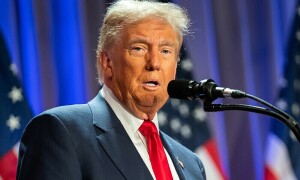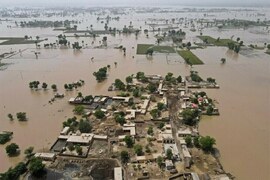International business leaders lauded investment prospects in Africa on Wednesday, citing excellent profit growth and declining corruption on the world's poorest continent. "If there were any more of Africa we would be investing in it," Graham Mackay, CEO of international brewer SABMiller told reporters. "The long-term growth record of our business in Africa is better than the long-term record of our business in any other part of the world," he said at a news conference at the World Economic Forum (WEF) Africa summit.
The meeting is expected to give a ringing endorsement of the Africa Commission, an ambitious British-backed plan to revitalise African economies, amid fears it is falling behind in the race for faster growth.
The plan challenges the rich world to open doors to Africa and free an extra $25 billion a year in aid to help end widespread poverty and under-development.
Niall FitzGerald, chairman of Reuters and co-chair of the Africa Summit organised by the Swiss-based WEF, said there was a growing awareness of the improving economics and political environment in Africa.
"If you look at 2005 you are likely to see average economic growth across Africa approaching 5 percent... There is an absolutely realistic aspiration that that can go up to 7 or even 8 percent."
He cited the turnaround of formerly war-ravaged countries such as Mozambique and Angola and Africa's home-grown Peer Review Mechanism, a scorecard of good governance and economic practices. The first peer review report is due later this year.
More than 500 executives from some of the world's leading multinationals at the meeting hope their endorsement of the Africa Commission report would influence a G8 summit of major nations next month when aid for Africa will be on the agenda.
British Prime Minister Tony Blair unveiled the Commission's report in March, detailing plans to raise aid and open rich country markets to help millions of poor farmers.
African countries need to bolster governance and democracy and slash corruption.
But a key proposal to use International Monetary Fund gold stocks to fund debt relief in Africa has received a cool response from the United States, and from political commentators in Africa who say the plan is nothing new.
Business leaders say it creates new growth opportunities.
Mackay said there was a noticeable reduction in corruption - a serious problem in most African states and often cited as a barrier to investment. "My understanding is that corruption is dropping in Africa ... more of it is caught and stopped rather than more stuff starting."
Anglo American South Africa chief executive Lazarus Zim said Africa offered enormous opportunities for investment and growth.
His company had invested 100 billion rand ($14.52 billion) on the continent over the past 5 years and a further $4.2 billion was in the pipeline for the next 3 years.
"Where we are today is completely unprecedented," he said of the interest and opportunities in Africa.
BR100
15,235
Increased By
150.4 (1%)
BR30
44,824
Increased By
812 (1.85%)
KSE100
149,971
Increased By
1353.3 (0.91%)
KSE30
45,655
Increased By
407.2 (0.9%)






















Comments
Comments are closed.